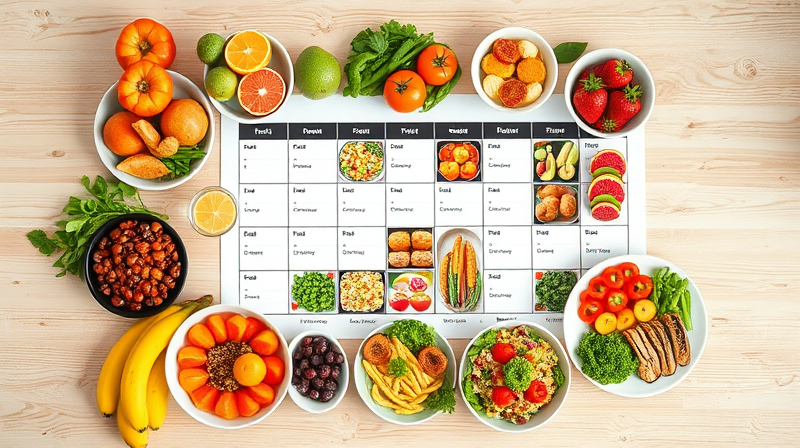Chronic stress can be overwhelming, but with proactive strategies it is possible to regain control over your life. Every small step can lead to a significant improvement in your overall well-being. In this article, we explore practical techniques and lifestyle adjustments that help reduce the impact of long-term stress on both your physical and mental health.
Understanding the nature of chronic stress is the first step towards managing it effectively. Unlike acute stress, which is short-term and sometimes even beneficial, chronic stress lingers and can gradually undermine your quality of life.
Understanding and Recognizing Chronic Stress
Chronic stress is the prolonged exposure to stressors that can negatively affect your body and mind over time. It is the result of continuous pressure that does not allow your body to recover. The impact of chronic stress can manifest as anxiety, depression, and even physical ailments such as heart disease and a weakened immune system.
Recognizing the signs of chronic stress is crucial. These may include constant fatigue, difficulty concentrating, irritability, and sleep disturbances. By identifying these symptoms early, you set the stage for effective intervention and improved overall health.
Core Principles of Proactive Stress Management
A proactive approach to stress management involves adopting strategies that not only help you cope when stress arises but also reduce the frequency and intensity of stress responses over time. Here are some key principles to guide you:
- Mindfulness and Meditation: Engage in mindfulness exercises to bring your attention to the present moment. Practices like meditation, yoga, and controlled breathing can help reduce anxiety and promote mental clarity.
- Regular Physical Activity: Exercise releases endorphins, natural mood elevators that can counteract stress. Even moderate activities like brisk walking or cycling are beneficial.
- Healthy Lifestyle Modifications: Simple dietary changes, avoiding harmful substances, and staying hydrated are foundational steps in managing stress.
- Prioritize Sleep Hygiene: Quality sleep replenishes your body’s energy reserves. Adopting a regular sleep schedule and a calming bedtime routine is essential.
- Build and Maintain Social Connections: Strong social ties provide emotional support and help you feel connected, reducing feelings of isolation during stressful periods.
- Effective Time and Task Management: Prioritize tasks, set achievable goals, and break large projects into manageable steps to maintain a sense of control.
- Incorporate Relaxation and Enjoyable Activities: Whether it’s gardening, art, or any hobby you enjoy, dedicating time for activities that relax you is a critical component in stress reduction.
Embedding Stress Management into Your Daily Routine
Building a resilient lifestyle is all about consistency and making small adjustments that add up over time. By incorporating these techniques into your day-to-day life, you create a strong foundation from which to handle stress:
Dedicate Time Daily: A simple practice like spending 10-15 minutes in meditation or mindfulness can have lasting benefits. Try to schedule this time just as you would any important meeting or task.
Be Intentional with Your Choices: Every meal, sleep routine, and physical activity contributes to your overall sense of well-being. Opt for whole, nutritious foods and maintain a balanced diet.
Reach Out for Support: Don’t underestimate the power of a kind word or a shared moment. Regular interactions with family, friends, or support groups can provide comfort and perspective.
Sometimes, chronic stress can stem from feeling overwhelmed by obligations and responsibilities. It is during these moments that effective time management becomes instrumental in creating a sense of achievement and reducing anxiety. Break down your daily tasks, set achievable goals, and celebrate every small victory.
Embracing a Holistic Approach to Well-Being
The journey to managing chronic stress is unique for everyone. While some may find solace in physical activity, others might benefit more from mindfulness practices or social connection. The key is to experiment and find what resonates with you.
Remember that chronic stress does not have to dictate the quality of your life. By integrating these practices into your routine, you position yourself to not only manage stress more effectively but also to enjoy a richer, more connected life.
Small, consistent efforts yield profound results. Whether you start with a short meditation session in the morning or commit to a daily walk, every positive step contributes to your overall resilience and ability to handle life's challenges.
Take this opportunity to prioritize your mental and physical health by proactively managing stress. Empower yourself with these tools and inspire those around you to also embrace a lifestyle that values self-care and balance.
Remember, the power to transform your stress response lies within you. With intention, perseverance, and compassion for yourself, a more balanced and peaceful life is within reach.







